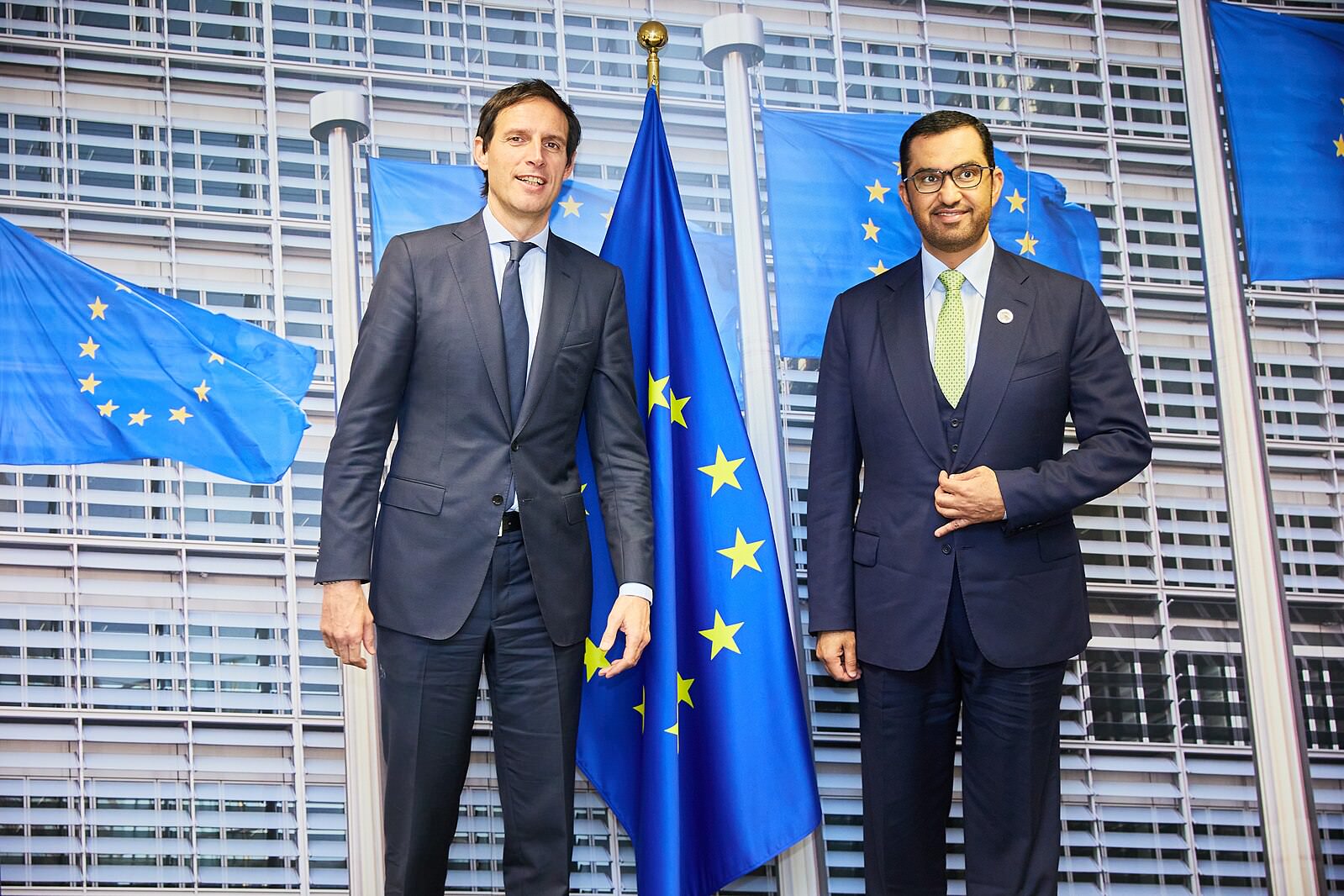World
U.S. climate damage fund pledge of $17.5 million ‘embarrassing,’ say experts
By Jake Beardslee · December 1, 2023
In brief…
- COP28 delegates formally adopted long-debated climate damage aid fund
- Wealthy countries like UAE and Germany quickly pledged millions, but U.S. sum called inadequate
- Focus shifts to finalizing language on fossil fuel phase down, a sticking point at recent talks
- UAE president insists on full transparency despite heading state oil giant ADNOC

Delegates at the U.N. climate summit COP28 formally established a long-sought fund to help vulnerable countries bearing the brunt of climate change impacts. The parties adopted the measure on the summit’s opening day in Dubai, freeing up time to address other critical issues like slashing fossil fuel use.
Several wealthy nations announced contributions to the new fund, which will direct financing to developing states facing climate-worsened natural disasters. However, some countries’ donations provoked criticism for being inadequate given the enormous need.
The host United Arab Emirates pledged a leading $100 million, with Germany matching that amount. But the United States’ $17.5 million contribution drew particular condemnation as “embarrassing” and a “drop in the ocean,” according to CNN. Ani Dasgupta, president & CEO of World Resources Institute called the sum “disappointing” given the mammoth size of the U.S. economy. An activist said it showed the U.S. pledge was “just the start.”
With the fund approved, attention shifts to finalizing summit language on ‘phasing down’ fossil fuels. The host nation United Arab Emirates, a giant oil and gas producer, is reportedly pushing for concessions allowing continued fossil fuel use if paired with emissions-cutting technology like carbon capture. Over 80 countries voiced support for strong anti-fossil fuel language at last year’s climate conference. It remains controversial given many major economies’ reliance on coal, oil and gas.
Summit president Sultan Al Jaber, who heads the UAE’s state oil company ADNOC, opened the conference by vowing transparency despite criticisms of his dual role. Climate groups questioned whether he could prevent the nation’s energy interests from tainting negotiations. Al Jaber called the fund’s approval “historic.”